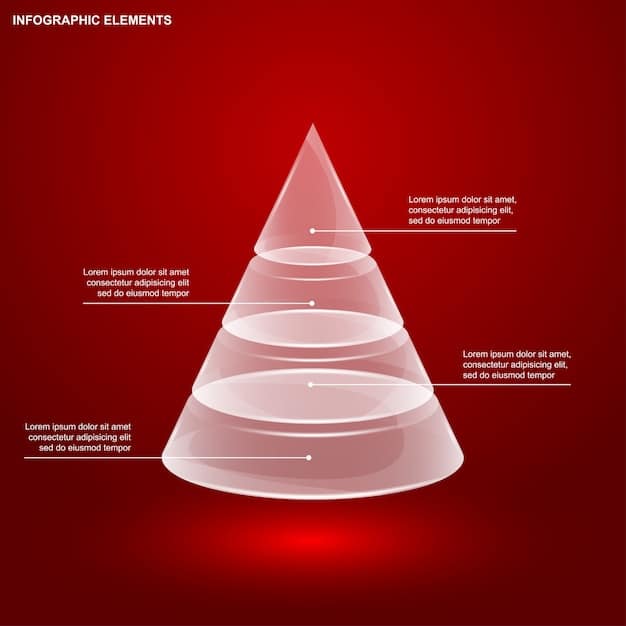The Truth About Fragrance Reviews: Unveiling Myths & Realities

The Truth About Fragrance Reviews lies beyond the hype and marketing speak, delving into the subjective nature of scent, the importance of individual skin chemistry, and the potential biases within the fragrance community, ensuring consumers make informed decisions.
Navigating the world of fragrances can be overwhelming, especially when relying solely on online reviews. The Truth About fragrance reviews is that they’re subjective, influenced by individual perceptions, skin chemistry, and even personal biases. Let’s explore what truly matters when evaluating fragrances.
Understanding the Subjectivity of Scent
Fragrances are deeply personal. What smells divine to one person can be unpleasant to another. Understanding this inherent subjectivity is the first step in properly interpreting fragrance reviews.
The olfactory system is complex, and our perception of scent is influenced by numerous factors, from genetics to personal experiences. Therefore, a review stating “this smells amazing” or “this is terrible” should be taken with a grain of salt.
The Role of Personal Associations
Our memories and emotions are strongly linked to scent. A particular fragrance may evoke pleasant memories in one person while reminding another of something negative. This emotional connection inevitably shapes our perception and any subsequent reviews.
Cultural Differences in Scent Perception
Scent preferences can also vary across cultures. What’s considered a desirable fragrance in one part of the world might be perceived differently in another. Understanding these cultural nuances is crucial when reading reviews from diverse sources.

Ultimately, fragrance reviews are subjective expressions of personal experiences. While they can provide valuable insights, it’s essential to remember that your own experience may differ significantly.
The Impact of Skin Chemistry on Fragrance
One of the most significant factors influencing how a fragrance smells is skin chemistry. Our skin’s pH levels, oil production, and even diet can alter the way a fragrance develops and lasts.
A fragrance that smells incredible on a friend might not smell the same on you. This is because the fragrance interacts with your unique skin chemistry, creating a different scent profile.
- pH Levels: Skin pH can vary from person to person.
- Oil Production: Oily skin tends to hold fragrance longer and can amplify certain notes.
- Diet and Hydration: What you eat and how hydrated you are can also affect your skin’s chemistry.
Reading reviews that mention how a fragrance performs on different skin types can be helpful. Keep in mind that these are still subjective observations.
Skin chemistry plays a pivotal role in how a fragrance smells. No two people will experience a fragrance in exactly the same way. Consider your own skin type and how it typically interacts with fragrances when interpreting reviews.
Decoding Fragrance Notes and Accords
Fragrances are composed of various notes, which are individual scent components that combine to create the overall fragrance profile. Understanding these notes and how they interact can help you better interpret reviews.
Fragrance notes are typically categorized into top, middle, and base notes. Top notes are the first scents you perceive, middle notes emerge as the top notes fade, and base notes provide the foundation and longevity of the fragrance.
Understanding Common Fragrance Families
Fragrances are often classified into families such as floral, oriental, woody, and fresh. Knowing these families can help you anticipate the overall scent profile of a fragrance.
The Art of Blending: Accords
An accord is a harmonious blend of two or more fragrance notes that create a distinct scent. Understanding common accords can give you insight into the complexity and artistry of fragrance creation.

By understanding the different notes and accords, you can gain a more nuanced understanding of fragrance reviews. Look for reviews that describe the development of the fragrance over time and how different notes interact.
The Influence of Biases in Fragrance Reviews
Fragrance reviews can be influenced by various biases, both conscious and unconscious. Recognizing these biases can help you critically evaluate the information presented.
Brand loyalty, personal preferences, and even the packaging of a fragrance can influence someone’s perception and subsequent review. It’s important to consider these potential biases when reading reviews.
- Brand Loyalty: Reviewers may be more likely to give favorable reviews to fragrances from brands they admire.
- Personal Preferences: Preexisting preferences for certain notes or fragrance families can sway a reviewer’s opinion.
- Packaging and Marketing: Attractive packaging or clever marketing campaigns can create a positive bias.
The Halo Effect in Fragrance Reviews
The halo effect occurs when a positive impression of one aspect of a fragrance (e.g., the brand) influences the overall perception of the fragrance itself.
Confirmation Bias in Fragrance Communities
People tend to seek out information that confirms their existing beliefs. This can lead to confirmation bias in fragrance communities, where members reinforce each other’s opinions.
Be Aware of Paid Reviews and Influencer Marketing
Some reviews may be sponsored or incentivized. It’s important to be aware of this and consider the source’s potential motives.
By recognizing the potential for bias, you can approach fragrance reviews with a more critical eye. Look for reviews that acknowledge potential biases and offer balanced perspectives.
Evaluating the Credibility of Fragrance Reviewers
With countless fragrance reviewers online, it’s essential to evaluate their credibility and expertise. Look for reviewers who demonstrate a deep understanding of fragrance and offer well-reasoned opinions.
Credible fragrance reviewers typically have a strong knowledge of fragrance notes, accords, and fragrance families. They can articulate their opinions clearly and provide specific examples to support their claims.
Looking for Balanced and Objective Opinions
A credible reviewer should present balanced opinions, acknowledging both the strengths and weaknesses of a fragrance. They should avoid overly enthusiastic or overly critical language.
Searching for Detail Information About Fragrances
A credible reviewer will provide specific information about the fragrance’s performance, including its longevity, projection, and sillage. They should also describe how the fragrance evolves over time.
Evaluating the credibility of fragrance reviewers requires careful consideration. Look for reviewers who demonstrate expertise and offer well-reasoned, balanced opinions. Avoid relying solely on reviews from unverified or biased sources.
Tips for Finding the Best Fragrance Reviews
Finding the best fragrance reviews involves a strategic approach. By utilizing a variety of resources and considering different perspectives, you can gather a more comprehensive understanding of a fragrance.
Start by reading reviews from multiple sources, including blogs, forums, and retailer websites. Pay attention to the overall consensus of opinions, but also look for reviews that offer unique insights.
- Read Reviews from Multiple Sources: Diverse perspectives offer a more comprehensive understanding.
- Look for Reviews That Mention Skin Chemistry: These reviews can provide valuable insights into how a fragrance might perform on your skin.
- Pay Attention to the Reviewer’s Expertise: Opt for reviews from knowledgeable and credible sources.
Using Fragrance Review Aggregators and Databases
Websites like Fragrantica and Parfumo aggregate fragrance reviews from various sources, providing a centralized platform for research. These databases can be invaluable for gathering information quickly and efficiently.
Sampling Fragrances Before Committing to a Purchase
Whenever possible, sample fragrances before purchasing them. This allows you to experience the fragrance firsthand and determine how it interacts with your skin chemistry. Many retailers offer samples or decants of popular fragrances.
Finding the best fragrance reviews requires a multifaceted approach. Utilize a variety of resources, consider different perspectives, and always sample fragrances before committing to a purchase. Remember, the ultimate judge of a fragrance is your own personal experience.
| Key Point | Brief Description |
|---|---|
| 🤯 Subjectivity of Scent | Fragrance perception varies greatly among individuals. |
| 🧪 Skin Chemistry | Skin pH, oil, and diet alter fragrance performance. |
| 👃 Fragrance Notes | Top, middle and base notes define a fragrance’s evolution. |
| 🧐 Reviewer Bias | Brand loyalty and personal preference can sway reviews. |
Frequently Asked Questions
▼
Fragrances interact with individual skin chemistry, including pH levels, oil production, and diet, leading to variations in scent. No two people will experience a fragrance in exactly the same way because of unique chemical compositions of their skin.
▼
Online reviews are useful for gathering information, but remember they are subjective. Consider multiple sources, reviewer expertise, and potential biases. Always sample fragrances yourself for the best assessment, as personal experience varies.
▼
The main categories are top notes (initial scents), middle notes (emerging after top notes fade), and base notes (lasting foundation). Each category contributes to the fragrance’s overall profile and evolution from the moment it is sprayed.
▼
Look for reviewers with detailed knowledge of fragrance notes and balanced, objective opinions. Credible reviewers acknowledge biases and mention performance aspects like longevity, projection, and sillage, offering a complete and well-explained review.
▼
Sampling allows you to experience how a fragrance interacts with your skin chemistry, ensuring it suits your personal preferences. Retailers often offer samples or decants, making sampling essential before committing to a full bottle purchase.
Conclusion
Understanding the truth about fragrance reviews involves recognizing the inherent subjectivity of scent, the impact of skin chemistry, and the potential for biases. By evaluating reviews critically and sampling fragrances yourself, you can make more informed decisions and discover scents that truly resonate with you.





